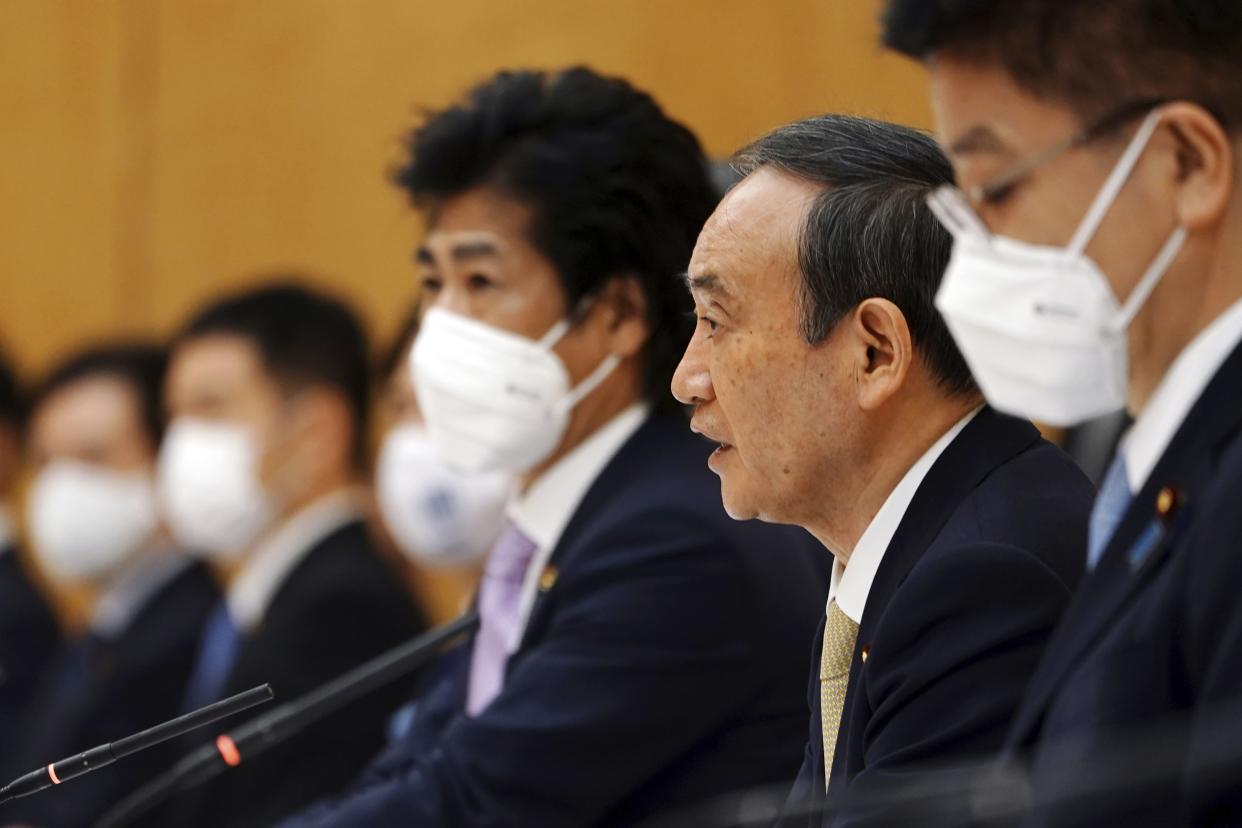Japan declares third state of emergency amid COVID surge
Japan on Friday declared a third state of emergency for Tokyo amid a spike in coronavirus cases as the country hopes to host the Olympics without a hitch.
The declaration, announced by Prime Minister Yoshihide Suga, also applies to Osaka — which has been under semi-emergency status since April 5 — as well as Kyoto and Hyogo, The Associated Press reports.
The “short and intensive” state of emergency will be in effect from April 25 through May 11.

The goal is for the move to halt traveling and the spread of COVID-19 during the country’s “Golden Week” holidays, said Suga, who is concerned about the quick spread four prefectures have seen from a new strain of the virus.
“I sincerely apologize for causing trouble for many people again,” said the prime minister, who had previously vowed to do what he could to avoid declaring a third state of emergency.
Suga pledged to make sure all of Japan’s senior citizens, all 36 million of them, will receive their second vaccine doses by the end of July. The plan was to previously have those shots in arms a month prior.

The new state of emergency will require bars, department stores, malls, theaters and more to shut down. Restaurants that don’t offer alcohol will be asked to close early, as will public transportation services.
While schools will remain open, universities will revert to online instruction.
Experts worry that the non-mandatory guidelines for masks and social distancing might not be adhered to.
The Tokyo area’s second emergency ended last month. Less stringent emergency measures have been criticized recently by experts and local leaders alike as they call for a tougher approach.
While some earlier measures consisted of only non-mandatory requests, February’s were tougher. Authorities were permitted to order the closure or shortened hours of nonessential businesses. Those who abided by the rules would be compensated and those who didn’t would be penalized.
The most recent spikes are concentrated in Osaka, which on Friday recorded 1,162 new infections.
The Olympics, which were canceled last year and are currently slated for late July, are still scheduled to go ahead as planned, Suga said, pointing to the authority of the International Olympic Committee.
The state of emergency will end just before IOC President Thomas Bach visits, leading some to wonder if the Olympics are taking priority over public health.
Japan has recorded more than 558,000 infections and nearly 10,000 deaths, according to a running tally by Johns Hopkins University & Medicine’s Coronavirus Resource Center.
With News Wire Services
